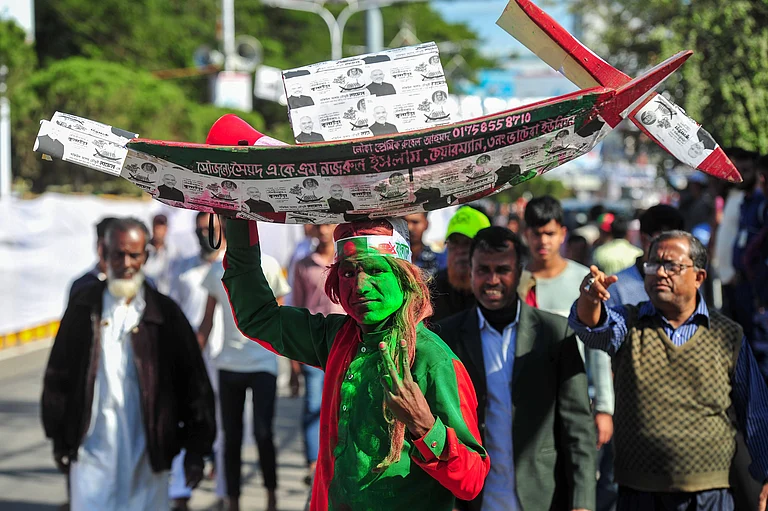With the outbreak of the Coronavirus, we have a range of ‘Corona warriors’ being ‘celebrated’ across the country for ‘fighting’ the ‘battle’ from the frontlines. Sanitation workers, Doctors, Nurses, ASHA workers etc. have been declared ‘heroes’ and ‘gods’ in this combat. While the semantics of using terms like ‘warriors’ and ‘heroes’ when they are struggling for even basic safety equipment is in itself questionable, there is still one group which has not received the requisite attention of either mainstream media or masses in general – the backbone of one of the world’s largest rail network: the Loco Pilots of Indian Railways.
The national lockdown compelled the Railways to suspend all their passenger services from March 22 until further orders. But during this period, goods trains are still plying, transporting essential goods and commodities across the country. The Railways has transported around 32 lakh tonnes of food grains from April 1to 16. The loco pilots are at the forefront of running these trains and ensuring timely delivery of supplies. They are susceptible to contract the virus as their work involves coordinating with other support staff (like the Guard and Assistant Loco Pilot), travelling and dining at multiple places with little possibility of washing hands and maintaining personal hygiene.
As the Loco Pilots continue running the goods trains, exposing themselves to grave risks, it’s pertinent to talk about these front-liners who are often ignored and delve into their deplorable working conditions; it’s important to underline the challenges they face and the reason that encourages only a few female Loco Pilots in Indian Railways.
Working Condition of Loco Pilots
Loco Pilots face various physiological, psychological, administrative and infrastructural difficulties to ensure the running of trains, no matter if there is a pandemic or not. The nature of their job requires them to be constantly alert with negligible rest. Long working hours, irregular rest periods, working against the biological clock and exhaustion, are the physiological factors that lead to their reduced mental and physical alertness, sleepiness and dizziness.
A cross-sectional study conducted to analyze the occupational stress and hypertension among Loco Pilots and Section Controllers revealed that 36.52 per cent of Loco Pilots suffer from hypertension due to immense strain and, hence, are at a greater risk of falling prey to coronary heart disease.
The major reason behind persistent psychological strain amongst the Loco Pilots is constantly working in difficult physiological condition along with the fear of Signal Passing at Danger (SPAD) as the minimum punishment for the same is the removal from service. This creates a psychologically unhealthy working environment, which consequently causes psychosomatic disturbance in Loco Pilots and affects their working efficiency in the long run. To cope with constant occupational stress, they often consume caffeinated or tobacco products in high quantities, which has a detrimental effect on their bodies.
In 2011, a High Power Committee headed by D.P.Tripathi, former secretary, Ministry of Food Processing Industries, constituted to ‘review the duty hours of Running Staffs and other safety-related categories of staff of Railways’, opined that there had not been any serious effort to look into the mitigation of stress caused to the Running Staffs on account of continuous working during the night hours. The committee concluded that accumulated sleep loss for a longer period of time results in poor judgment, poor decision-making, loss of alertness and related psychomotor coordination, leading to higher cases of SPAD.
Apart from physiological and psychological problems faced by Loco Pilots, another factor that severely impacts their working conditions is the lack of requisite infrastructural facilities in locomotives. Locomotives or cabins lack the most basic facilities of washrooms and drinking water, effectively resulting in Loco Pilotsgoing without water, food and breaks to answer the nature’s call for straight 7-8 hours. Most female Loco Pilots have emphasized on non-availability of washrooms as a major detrimental factor for not joining the profession.
Majority of the locomotives are also not air-conditioned that soars the temperatures inside the locomotives as high as 61 degrees Celsius during summer seasons making the condition of Loco Pilots extremely uncomfortable. Further lack of noise control mechanisms in cabins exposes them to risks of hearing impairments. The noise level in a diesel locomotive is more than 100 decibels, higher than maximum allowed limit of 75 decibels set by the Industrial Pollution Control Board.
In this reference, the D.P. Tripathi Committee emphasized the need of making cabins ‘crew friendly’ and recommended the development of air-conditioned locomotives with a waterless urinal or full-fledged bio-degradable toilets along with air-conditioned running rooms (where running staff can take rest after duty).
However, Piyush Goyal, Minister of Railways while replying to a question in the Parliament in March this year said that of 12,147 locomotives, only 1,914 have been provided with air-conditioned cabins and that on a trial basis, some cabins have been provided with toilets. The reply further revealed that recommendations made by the D.P.Tripathi Committee on providing air-conditioned running rooms have also not been implemented with almost one-third of running rooms not being air-conditioned yet.
Working Conditions of Female Loco Pilots
Indian Railways, the biggest public sector employer of the country, falls severely on account of gender ratio in its workforce. Out of 13, 33,966 Railways employees, only 89,337 (around 6.7 per cent) are women.
In recent past, some progress has been made with all-women-run stations (in Matunga in Mumbai, Gandhinagar in Jaipur, Chandragiri in Chittor, Andhra Pradesh, and Ajani in Nagpur, Maharashtra) and all-women maintenance teams (Guwahati coaching Depot) being set up, yet the gender participation in Railway force is discouraging.
The first female train driver of the Indian Railways was SurekhaYadavwho had joined the profession in 1989. And 30 years later, the Indian Railways is yet to create favourable working conditions for women. On the contrary, in January 2019, Indian Railways had written to the Department of Personnel and Training seeking permission to hire only men for posts of drivers, porters, guards, gangmen citing tough and unfavourable working conditions. This is a classic case of ‘protectionism’ whereby, instead of creating a suitable working condition for women, women’s choices are restricted in the name of ‘protecting’ them from the occupations ‘not suitable for them’.
The Loco Pilots’ posts are conventionally considered for ‘men’ with little consideration towards female Loco Pilots. The driver’s cabin does not have a toilet and washroom can only be used at stations. Undermenstruation, conditions become all the more difficult. Lack of hygienic toilets, breaks for changing sanitary pads, a lack of place for rest severely impact the physical and mental health of women. Opening up to pre-dominantly male colleagues is another challenge.
Loco Pilots handle one of the most challenging jobs in the functioning of Indian Railways, yet face the direct working conditions. Amidst the national lockdown, with Loco Pilots working relentlessly and exposing themselves to the risk, there is a need to bring the working conditions of Loco Pilots into mainstream focus and seek immediate reforms.
(Shubham Kumar is an alumnus of NLU-Lucknow and an Ex- LAMP fellow. He would like to thank Surbhi Karwa, an alumnus of NLU-Lucknow and NLU-Delhi for her assistance. Views expressed are personal.)






















